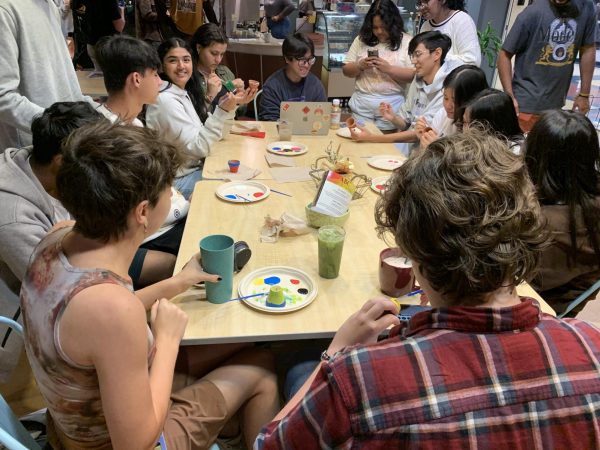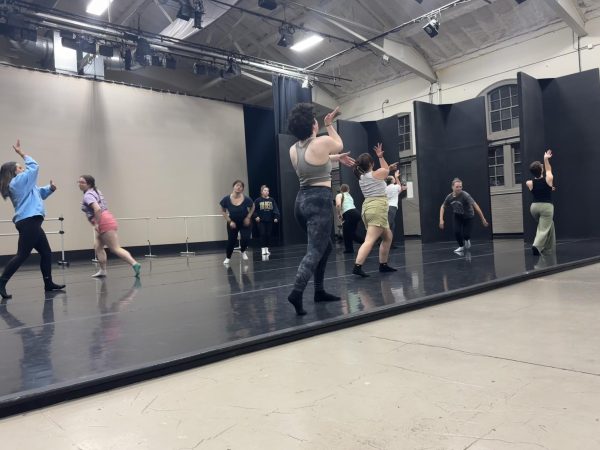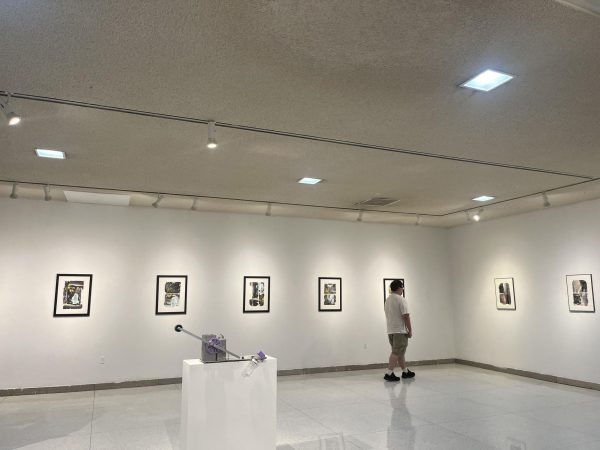College’s Islamic Cultural Association: Home for all
Club members strive to engage with community, foster relationships
As students filtered into the Prayer and Meditation House, they were greeted by the smell of turmeric-infused rice and chicken. People made themselves comfortable at a large, family-style dining room table. Baneen Al-Akashi, ’19, welcomed everyone to the first Islamic Cultural Association meeting of the year Friday, Sept. 7.
“You do not have to be a Muslim to join this club,” Al-Akashi, one of the club’s three co-presidents, said. “We have members of our board who aren’t Muslim.”
Sky Clark, ’20, is a non-Muslim member of the club and another co-president.
“Upon joining, I saw how much of a safe space it was for both Muslim and non-Muslim students,” Clark said.
The food, prepared by Boushra Daghestani, a local Syrian woman, was a way for the club to introduce members to Islamic culture, the club’s primary mission.
This month, ICA is celebrating two holidays that passed over summer. The first, Eid al-Fitr, marks the end of the fast of Ramadan. The second, Eid al-Adha, takes place after the Hajj, which is the pilgrimage to Mecca.

Members of the Islamic Cultural Association visit the Islamic Center of America in Dearborn, Michigan, on March 10, 2018.
The club has several events planned to celebrate the Eid holidays now that the semester has started, including making lanterns, canvases and prayer beads. While the lantern making event already passed, students can make canvases on Friday, Sept. 14 at 4 p.m. and prayer beads on Friday, Sept. 28 at 4 p.m. Both events are in the PAM House.
The festivities will culminate with the annual Eid celebration on Saturday, Sept. 29 at 7 p.m. in the Henderson Campus Center lobby. The gathering will feature ethnic food from a Pittsburgh caterer, music, dancing and decorations made by club members.
Jane Ellen Nickell, ICA adviser and college chaplain, said the club balances spreading awareness to non-Muslims through fun events and providing support for Muslim students on campus.
“We don’t have much of a Muslim community in Meadville,” Nickell said. “Part of the challenge is how do we provide as much support as we can given the place that we are.”
Bringing Muslim speakers and artists to campus is one way ICA connects Muslim students to Islamic culture. ICA received funding through the Diversity Innovation Fund the past two academic years, which allowed them to host Hind Makki, a Muslim speaker, in March 2017 and Helen Zughaib, a Muslim artist, in October 2017.
In November, ICA will host speaker Bilal Ansari, an African-American man who recently converted to Islam. The club’s presidents asked Ansari to address perceptions of Islam in the black community.
Abdi Lugundi, ’20, a Somali Bantu student born in Kenya and the third ICA co-president, sees the importance of addressing the stereotypes about Muslim identity.
“Most people see it as race,” Lugundi said. “If you think of Muslim you have this set idea of a Middle Eastern, Arab, with the hijab or the traditional Muslim wear. Whereas I could be Muslim and no one would ever picture me as that.”
For Lugundi, being Muslim means sharing a meaningful set of values.
“It’s not really a race thing, it’s more of a lifestyle thing,” he said. “We all live this same lifestyle.”
Part of the lifestyle ICA emphasizes is the dedication to charity, known as zakat, one of the Five Pillars of Islam.
Lugundi spearheaded ICA’s charity initiatives through his own community service. His neighborhood, Northview Heights in Pittsburgh, is home to a large Somali Bantu population.
Lugundi, the president of this Somali Bantu community, is passionate about empowering the youth, specifically in furthering their education. Through ICA, Lungundi coordinates visits to Allegheny for high schoolers from his community.
This spring, the club will host a trip to Pittsburgh to complete a service project in support of these students.
Lugundi acknowledges the challenge of moving to a town with no Muslim community.
“Coming to Allegheny, I still wanted to feel part of that Muslim environment on campus,” he said. “It was hard finding an identity here, but the ICA made it cool to know there are people like me.”
ICA is dedicated to continuing this experience for new Allegheny students from diverse backgrounds, and Pittsburgh Somali Bantu students are invited to the Sept. 29 Eid celebration.
Above all, ICA strives to be a place for students of all backgrounds to feel welcome.
“We encourage people who are not experienced in the culture to come and feel comfortable talking about what they may not be comfortable about,” Al-Akashi said. “A lot of people are afraid of saying the wrong thing to a Muslim.”
That encouragement drew Clark to the club, she said.
“Being able to feel safe in that space and have culture provided to me, to open my mind and meet new people who have different beliefs helped me feel more included and sort of have a family,” Clark said. “They’re people I love.”
Nickell recognizes the hard work put into ICA by its leaders.
“The student leaders amaze me with how much they get done,” Nickell said. “For a small group, they have really good reach into the campus community. That’s what I’m proudest of.”
Al-Akashi, who helped build ICA after the former Islamic club, Project NUR, disbanded two years ago, feels especially dedicated.
“It’s like my baby. I put my heart blood and soul into this club,” she said.





